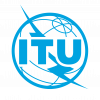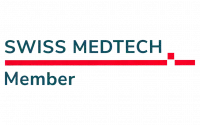BLOG
Telecom26 blog
How IoT Healthcare is transforming testing for infectious diseases across Africa

One company that has been a pioneer in the rollout of ehealth and mobile health solutions is Telecom26’s long-term customer, SystemOne. Its innovative approach of integrating diagnostic devices with IoT networks is changing the way healthcare is delivered.
Across 43 countries, SystemOne tests around 250,000 people per month for TB, HIV, ebola - and now COVID-19.
Traditionally samples are transported by road to the nearest laboratory for analysis. However, many of the medical centres are in remote rural areas and so it can take days for samples to arrive and the results and treatment plans communicated back to the patient. Unfortunately, speed of diagnosis and treatment is often the difference between life and death with many infectious diseases.
The SystemOne Way
SystemOne’s technology has revolutionised testing programmes. Its software connects to any diagnostic analyzer into which samples are fed with information sent to a remote diagnosis system where ailments can be identified and treatment plans immediately developed and sent back.
The need for Connectivity; embracing the IoT healthcare model
Key to the success of SystemOne’s real-time remote diagnostic data software is reliable connectivity.
Unreliable bandwidth and patchy connectivity are problems encountered by ehealth programmes across the world but particularly in Africa where many medical clinics are in remote areas with unreliable telecom networks.
Telecom26 has been providing IoT connectivity to SystemOne across both Africa and Asia for the past two years. Most recently the contract has been extended to SystemOne’s projects in Ghana, Mozambique and Zimbabwe.
Listen to SystemOne COO, Brad Cunningham, describe the initiative in his interview on the BBC World Service.
Telecom26’s IoT Healthcare Network in Action
The SystemOne diagnostic devices used by medical personnel now have Telecom26’s global SIM cards inside them.
The traditional route for SystemOne, and similar companies, was to buy local SIMs to provide device connectivity. Unfortunately, this limits users to one mobile network operator (MNO) - and adds juggling multiple SIMs across devices to find the strongest local network to a long list of headaches for medical personnel.
Telecom26’s global SIM cards were developed with the specific goal of improving connectivity in remote areas. They enable devices to automatically access and switch between multiple networks both in-country and across borders thus removing the need to worry about the coverage of a single MNO, or the existence of roaming alliances. Multiple-IMSI profiles are pre-loaded on every SIM allowing for simple reconfiguration if the primary network has poor or no service.
In addition, SystemOne is trialling Telecom26’s multi-SIM routers in Mozambique and Zimbabwe. These enable SystemOne’s diagnostics devices to access connectivity and automatically switch between multiple cellular and satellite networks - and any wifi or LANs - so that they always use the best performing connected network available.

Together SystemOne, Telecom26 and IoT networks are saving lives across the world - and helping countries respond more effectively to outbreaks of infectious disease by identifying positive cases faster, and allowing a big-picture view of disease spread across a region.
Please click here to learn more about Telecom26’s Connectivity Solutions for IoT Healthcare.



